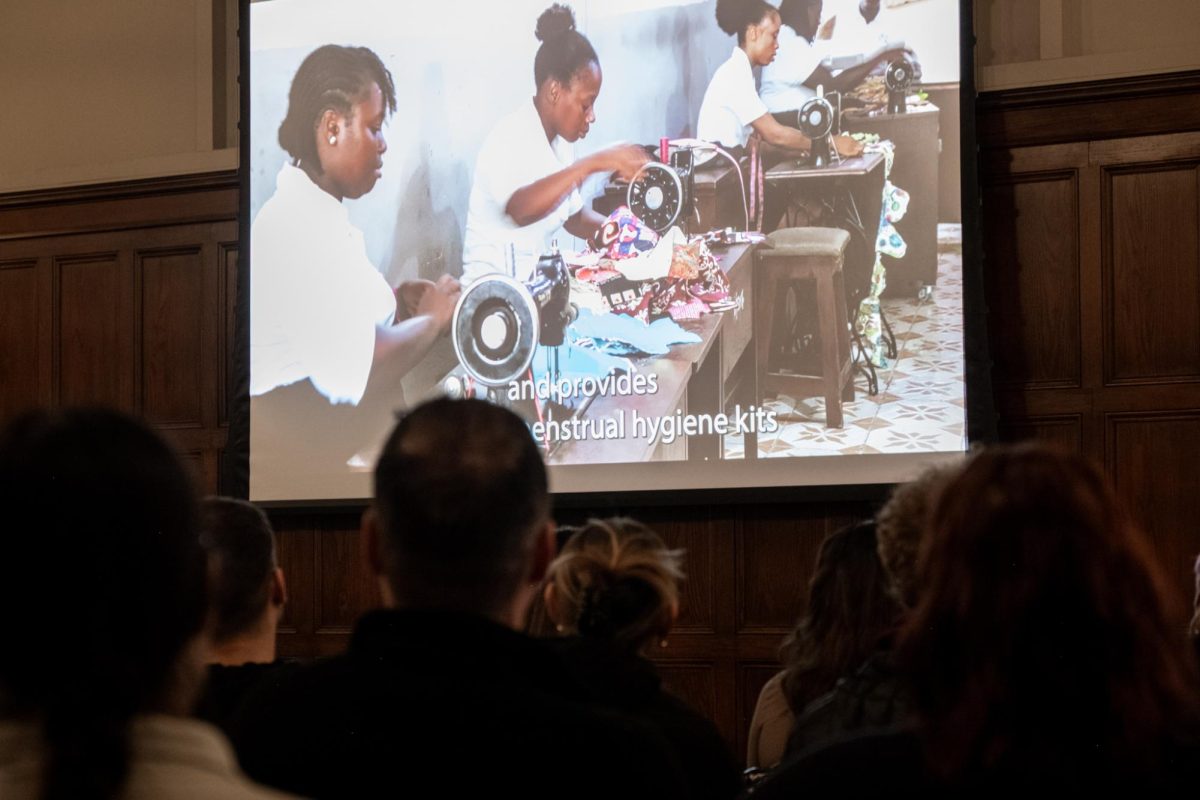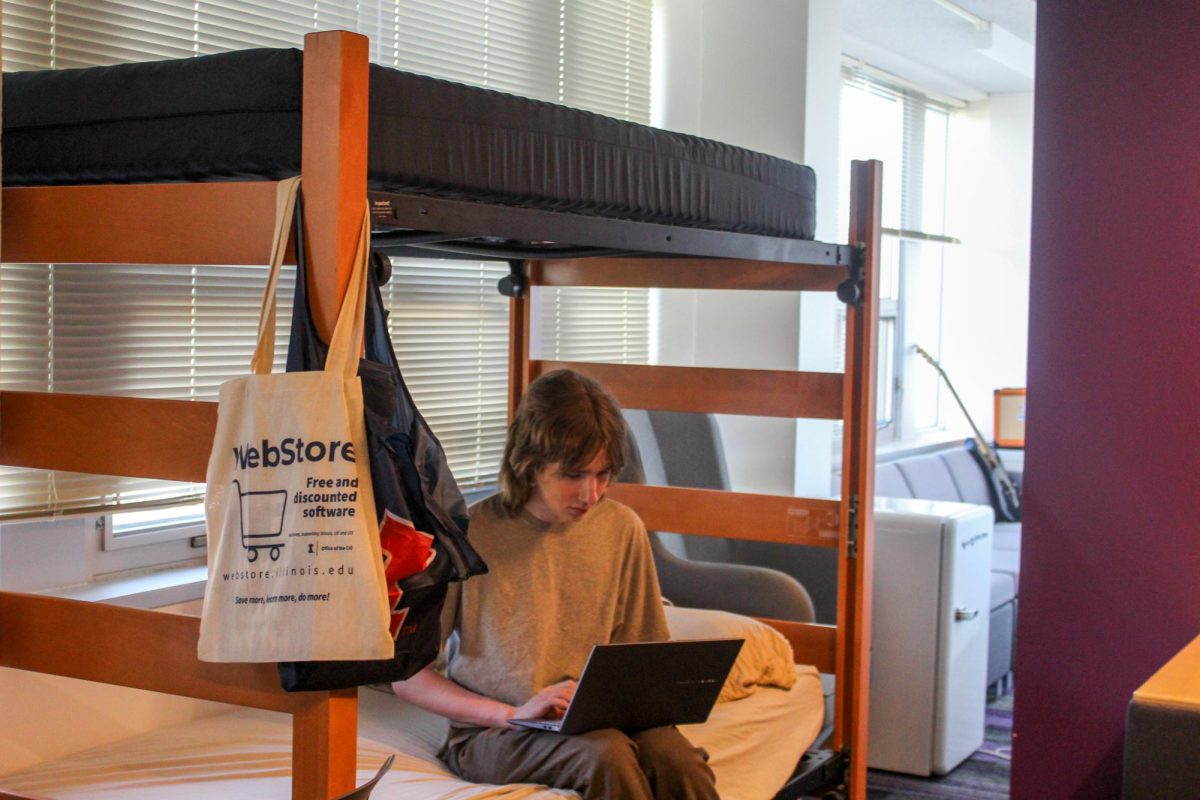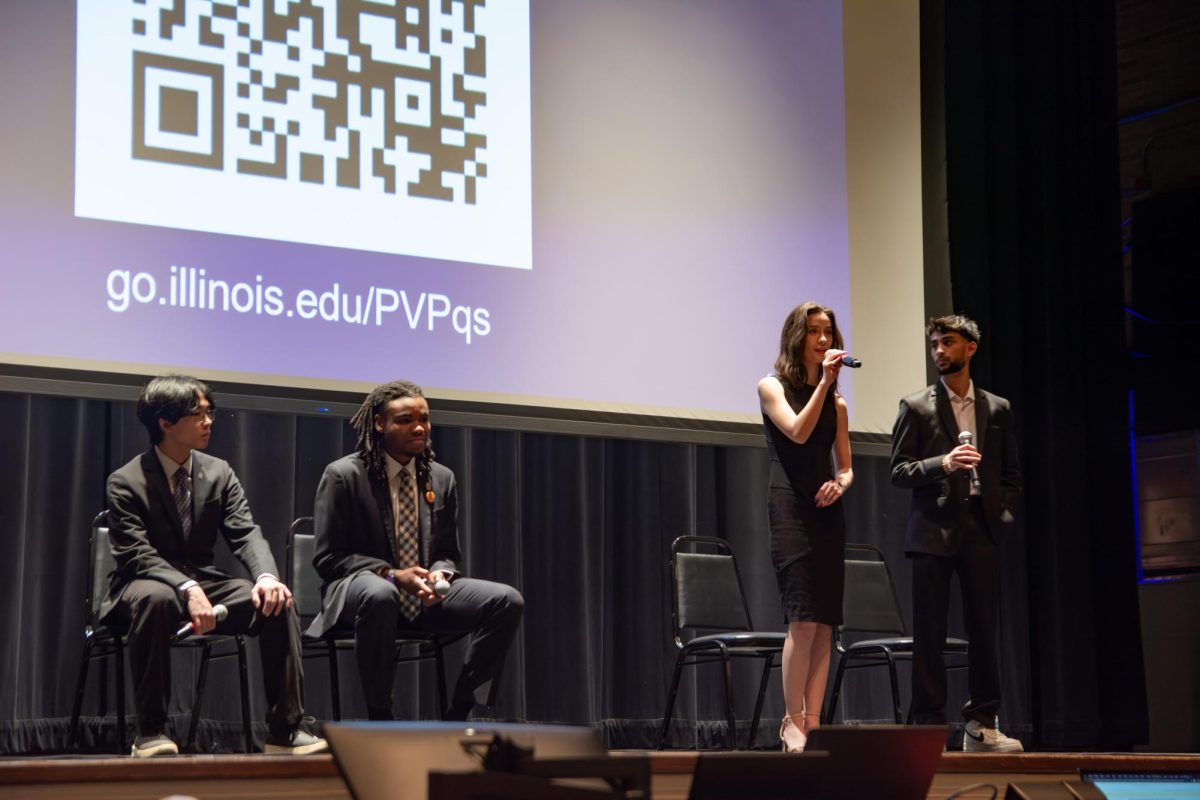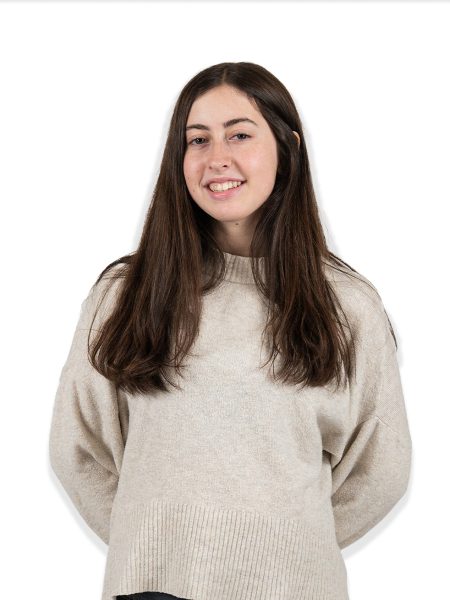Students and faculty collaborators gathered at the University YMCA on Thursday night for a screening of their film’s trailer and a discussion on global partnership. Their documentary, filmed last spring in Sierra Leone, captures period poverty, or lack of access to menstrual products and education, in the area.
The panel featured Charles “Stretch” Ledford, professor in Media; Alison Davis, lecturer in Media; Francis Sowa, lecturer at Fourah Bay College in Sierra Leone; and Sophie King-Hill, associate professor in the Health Services Management Centre at the University of Birmingham. Maimouna Barro, associate director at the Center for African Studies, moderated the discussion.
The documentary, “The Woman of Uman Tok Reframe Menstruation in Sierra Leone,” references Uman Tok, a nongovernmental organization from Sierra Leone that provides reproductive health education and menstrual products to local schools. “Uman Tok” translates to “woman talk,” symbolizing its goal of normalizing discussion about menstrual health.
“When we talk about period poverty, we quite often think about resources, don’t we?” King-Hill said. “But the real poverty is the stigma.”
Ledford’s opening remarks laid out the story of the film’s creation, which spans continents and disciplines.
Get The Daily Illini in your inbox!
“It’s the story of a seed that was planted by an Illinois student, nurtured by Illinois international and global relations, by the journalism department here in the College of Media, by the University of Birmingham and by Fourah Bay College,” Ledford said.
Ledford and Davis invited six College of Media students from JOUR 460: Special Topics to Sierra Leone to film for the documentary. The students — Faith Lee, Elena Cleary, Piper Pascarella, Nour Longi, Maggie Knutte and Stephanie Wadya — filmed last March with students from Fourah Bay College in Freetown, Sierra Leone.
Barro provided historical context to Sierra Leone’s struggle with period poverty, citing centuries of colonialism under Britain and an 11-year civil war that devastated the country’s economic and health infrastructures. Many Sierra Leonean girls now struggle with accessing crucial sanitary products for financial reasons.
The documentary trailer showcased Sierra Leonean students and employees of Uman Tok, who spoke of social taboos around periods that prevent young girls from attending school while menstruating.
“We have a platform,” King-Hill said. “But Uman Tok are the experts in what is needed in their local community, and that is one of the key aspects of why they are so successful.”
Davis, an experienced documentarian and the documentary’s producer, spoke about the interviewing process.
“Our student filmmakers and Francis’ students made the women feel extremely comfortable … and connected with them on that human level,” Davis said. “They were sharing very dark situations in their life, and we were so honored that they felt comfortable sharing that with us.”
Along with the documentary, the group is developing various supplementary educational resources.
“We’ve expanded the scope of our storytelling to include not only a documentary but also immersive virtual reality … an audio podcast … social media-friendly videos and an ink-on-paper comic book,” Ledford said.
According to Ledford, the group is also building a campaign with advertising students to generate more clients for Uman Tok. The team plans to return to Sierra Leone in March and continue gathering content for these projects.
Sowa, who led Fourah Bay College students in working with the University, expressed his gratitude for the collaboration.
“We are proud; we are happy to be associated with this initiative … It is a win-win situation,” Sowa said. “While our students learn from (the University students), we are also able to provide some context specifically to the work around period poverty.”
The panelists each shared their takeaways from the project, ranging from new perspectives on a global problem to hope for developing solutions.
“Projects like this in places like Sierra Leone that try to do so much with so little stand as proof that hope endures,” Ledford said.
Those interested in learning more about the Uman Tok organization can do so here.







